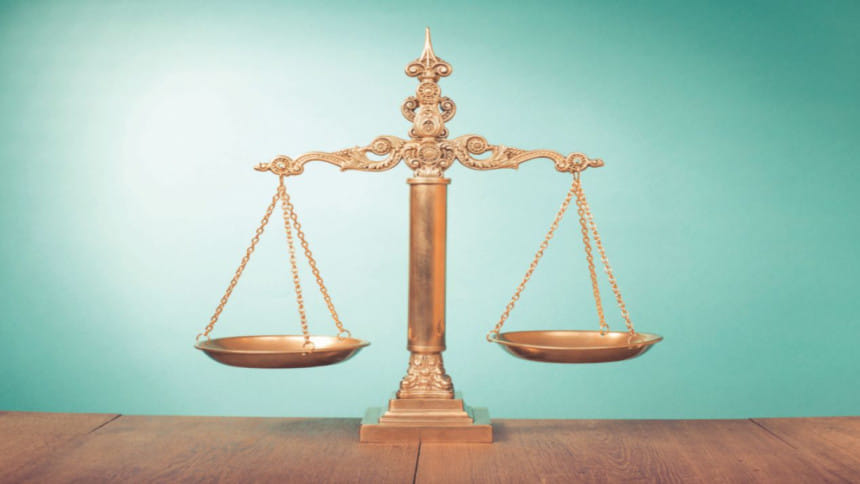A National Tribunal for 'International Crimes', Not an 'International Tribunal'

The Economist, in its November 7 article titled 'Fears in the shadows', stated that "Top leaders of Jamaat have been sentenced by a self-styled International Crimes Tribunal --". Unlike many persons or organisations of international reputation the columnist did not directly raise the issue of 'international standard', but use of the expression 'self-styled' hinted disrespect to the procedural standard of the tribunal. This domestic or national tribunal of Bangladesh has meticulously avoided the weaknesses of Nuremberg, Tokyo or Moscow Tribunal and has been always at par with Rwanda or Former Yugoslav Tribunal in terms of ensuring due process. Inam Ahmed, in his November 9 article in The Daily Star, explained this issue briefly. Yet the confusion seems to dominate comments of persons or organisations about the procedural standard.
Perhaps the very word 'International' in 'International Crimes Tribunal' has created the perception of a misnomer. At the time of drafting of the London Charter of the International Military Tribunal, war crimes, crime against humanity and crime of aggression were known as international crimes and subsequently, genocide, terrorism, etc. also became known as international crimes. In Bangladesh, International Crimes Tribunal Act, 1973 was drafted to try the criminals who committed international crimes like war crimes, crime against humanity, genocide, etc. And the tribunal formed under this law is known as the International Crimes Tribunal. This is not an international tribunal; this is simply a domestic or national tribunal. And the procedural standard it follows is no less than any international tribunal. International criminal lawyers are not allowed to represent any defendant in this tribunal because Bangladesh Bar Council law does not allow any person to practice law in Bangladesh unless the person passes the bar exam. The word 'International' in its name may have attracted the attention of the international communities, and their comments seem to reflect that they consider it an international tribunal.
To reflect slightly on the procedure, the case of Delwar Hossain Sayeedi, who was sentenced to life imprisonment by the Appellate Division of the Supreme Court, can be mentioned. The case started with the presumption of innocence at the tribunal level and the burden was on the prosecution to prove that he was guilty. Therefore, the defendant was not required to prove anything by bringing in evidence or witnesses on his behalf unless he wished to take an affirmative defence. In the criminal justice system the defendant takes such a position only when he thinks that the prosecution has enough evidence to prove the case and he does not contest it except for the fact that he was not involved. In such a case, the burden of proof shifts to the defendant to prove that he was innocent. Sayeedi took the stand that he is not the same Delwar Hossain who committed the crime as alleged by the prosecution. He requested the court to allow him to bring witnesses to prove that he is a different Delwar Hossain. The Tribunal allowed him to do so. Sayeedi would have been the best person to tell the court who he is, but he brought in other people as witness to prove who he is. While the prosecution never forced Sayeedi to become a witness against himself, surprisingly he chose not to become a witness in his own favour either. During the cross-examination his witnesses miserably failed to establish their credibility.
Despite Sayeedi's affirmative defence stance and shift of burden of proof, the Tribunal showed utmost generocity towards the defendant's rights by allowing the defendant to cross-examine all prosecution witnesses. At times, the defendants cross-examined the witnesses for a few days. Comments against the fairness of this process by international communities hurt the sentiment of the people of Bangladesh. Especially, the comments of those who supported or remained silent during the genocide in 1971 are very disturbing.
The writer is a lawyer and an occasional contributor to The Daily Star.

 For all latest news, follow The Daily Star's Google News channel.
For all latest news, follow The Daily Star's Google News channel. 



Comments